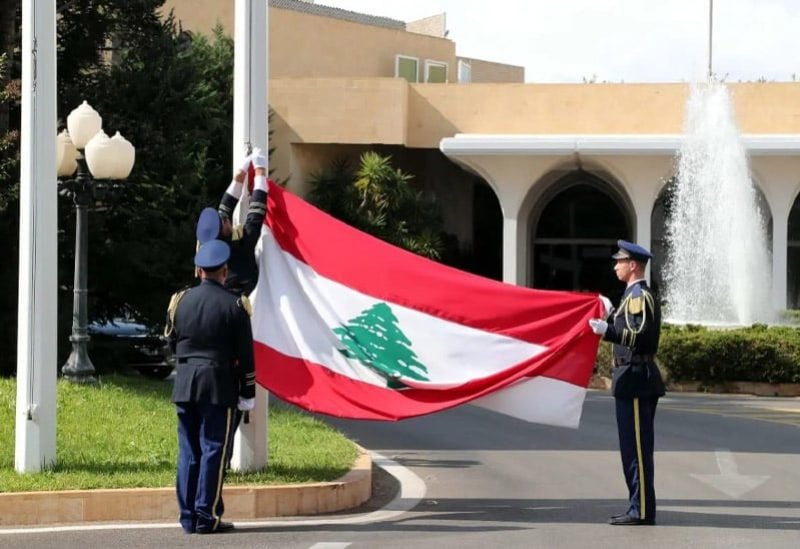
The Republican Palace in Baabda
The number of foreign ambassadors accredited to Lebanon who were unable to present their credentials due to the vacancy of the presidency from the President of the Republic for about a year until now, almost reaches more than a quarter of the foreign representation in Lebanon.
They work in Lebanon as charge d’affaires only. Does this situation have an impact on bilateral diplomatic and political relations between Lebanon and the international community?
Prominent diplomatic sources confirm that the impact on Lebanese-international relations does not stop at this issue only, but rather the entire situation of Lebanon affects the relationship with the outside world.
Lebanon does not have the ability to address the international community within a specific plan because of the presidential vacancy and the dispute over that, and because of dilapidated institutions, and the differences in the opinions of the parties about everything.
Lebanon is currently characterized by relations with countries that are almost abnormal, because there are no functioning institutions and no plan, even though all countries are well aware of the difficult political situation that the country is going through.
According to diplomatic laws, the first thing is that an ambassador accredited to a country is prohibited from meeting with any official in the country to which he is accredited before presenting his credentials. In Lebanon, what is happening is that it is up to each Lebanese official to decide whether or not he will meet the accredited ambassador who has not presented his credentials, while he is in the capacity of chargé d’affaires.
In Lebanon, there is no problem. Any ambassador or charge d’affaires can meet whoever he wants. As for the countries, they do not allow any Lebanese or non-Lebanese ambassador, if his credentials are not presented, to meet with any state official. It requires him not to leave the embassy to meet with any figure outside it.
When an ambassador cannot present his credentials, it means that there is a major problem in the country, especially one that remains months or more without a president. Foreign ambassadors told “Sawt Beirut International” that they cannot work normally. They are arranging their affairs and studying reports, but they cannot perform their work properly, as there is no president and the government is a caretaker government, and they cannot plan projects with Lebanon, or bilateral visits from Lebanon. Their countries to Lebanon.
Lebanon even sends ambassadors abroad as chargé d’affaires, as there are no diplomatic formations in the vacancy of the position of president, and no credentials, because these papers are a metaphor for a letter from the President of the Republic to the President of the other country in which he says that he has assigned the appointed ambassador to represent him in the country in which he is appointed.
Currently, Lebanon and its relevant authorities have practically given foreign ambassadors the green light to act as ordinary ambassadors until they present their credentials to the president.
So they hold meetings with officials, for example the new French ambassador, who meets everyone. While Washington is waiting until a president is elected in the procedures for handing over its new ambassador to Beirut, it has extended the current ambassador, Dorothy Shea, for some time.